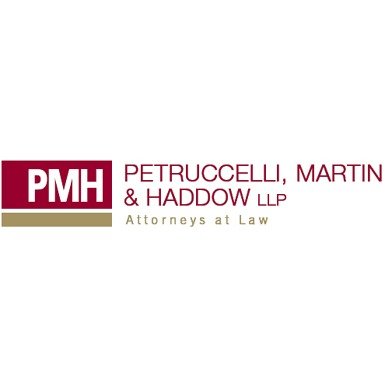Best Equity Capital Markets Lawyers in Maine
Share your needs with us, get contacted by law firms.
Free. Takes 2 min.
Or refine your search by selecting a city:
List of the best lawyers in Maine, United States
About Equity Capital Markets Law in Maine, United States
Equity Capital Markets (ECM) law in Maine centers on the rules and processes for raising capital through the issuance of equity securities such as common stocks, preferred shares, and similar instruments. These markets allow Maine-based companies, both private and public, to raise funds from investors for business development, expansion, or restructuring. ECM law in Maine is shaped by a combination of federal regulations, particularly those enforced by the Securities and Exchange Commission (SEC), and specific state statutes and regulations overseen by the Maine Office of Securities. Legal professionals in this field provide guidance on securities offerings, compliance requirements, and corporate governance to ensure all activities are lawful and that investors are protected.
Why You May Need a Lawyer
Issues concerning equity capital markets can be complex and highly regulated. Here are some common situations where you might need legal help in Maine:
- Launching an initial public offering (IPO) or other equity offering.
- Navigating compliance with federal and Maine state securities laws.
- Structuring private placements for raising equity investment.
- Drafting and reviewing offering documents and disclosures.
- Addressing matters of corporate governance or shareholder rights.
- Resolving disputes between shareholders or between shareholders and the company.
- Managing regulatory investigations or enforcement actions.
- Advising on mergers, acquisitions, or takeovers involving equity instruments.
- Ensuring proper reporting and filing with relevant local and federal authorities.
- Protecting confidentiality and proprietary information during capital raising.
In these scenarios, a lawyer specializing in equity capital markets can help avoid costly mistakes and legal exposure, and ensure that transactions are structured effectively under the law.
Local Laws Overview
Maine has its own sets of statutes and regulations that interact with federal securities law when it comes to equity capital markets. The Maine Uniform Securities Act governs the offer, sale, and registration of securities within the state. This act requires certain securities and securities professionals to register with the Maine Office of Securities, subject to various exemptions.
Key aspects of local law include:
- Registration and exemptions: Not all securities offerings require full registration in Maine, but it is crucial to understand which exemptions may apply.
- Disclosure obligations: Issuers must provide truthful and complete information to investors to prevent any misrepresentation or omission of material facts.
- Broker-dealer and investment adviser regulations: Professionals involved in ECM must comply with licensing requirements and conduct standards.
- Enforcement: The Maine Office of Securities has authority to investigate, and enforce actions related to securities fraud or noncompliance.
- State coordination with SEC regulations: Most offerings must adhere to federal laws, meaning both state and federal rules often apply simultaneously.
Given the interplay of state and federal rules, compliance can be intricate, and local guidance is crucial to navigating these obligations effectively.
Frequently Asked Questions
What is considered a security under Maine law?
Under the Maine Uniform Securities Act, a security includes stocks, bonds, notes, interests in LLCs, and many other investment instruments. Not every equity interest qualifies, so legal advice may be needed to determine applicability.
Do all companies have to register their securities offerings in Maine?
Not all securities offerings must be registered. Certain exemptions are available for private placements, specific small offerings, or offerings limited to accredited investors. However, relying on an exemption requires compliance with strict criteria.
What disclosures are required for an equity offering?
Both federal and Maine law require issuers to provide material information to investors, such as business operations, financial statements, risks, and intended use of proceeds. These disclosures are usually made through an offering memorandum or prospectus.
What is the difference between a public offering and a private placement?
A public offering is available to the general public and typically requires extensive SEC and state registration and disclosures. A private placement is offered to a limited group of investors and may qualify for registration exemptions, but is still subject to anti-fraud rules.
Does Maine recognize crowdfunding equity offerings?
Yes, Maine allows certain equity crowdfunding offerings under its Intrastate Crowdfunding Exemption, provided the issuer and investors meet specific requirements. Federal crowdfunding regulations may also apply.
What are the penalties for noncompliance with ECM laws in Maine?
Penalties can include fines, a requirement to rescind transactions, bans from offering securities in Maine, and, in severe cases, criminal prosecution for fraud or willful violations.
Can a Maine-based company issue stock to employees as part of compensation?
Yes, but such plans must comply with both federal and Maine securities laws, including disclosure obligations and possibly registration or reliance on specific exemptions for employee benefit plans.
Who regulates equity capital markets activities in Maine?
The Maine Office of Securities is the primary state regulator, and the SEC is the main federal regulator. Other agencies may become involved depending on the structure of the transaction.
How does Maine treat foreign entities raising capital in the state?
Foreign corporations must comply with Maine’s securities laws when offering securities to Maine residents, including registration or qualifying for an exemption from registration.
Do I need legal advice before investing in or offering securities?
Strongly recommended. Both issuers and investors face significant legal risks, and securities laws are complex. Legal counsel can help ensure compliance and protect your interests.
Additional Resources
The following organizations and agencies can provide helpful information and support regarding equity capital markets in Maine:
- Maine Office of Securities - Administers and enforces Maine’s securities laws, provides regulatory guidance and resources for both issuers and investors.
- Securities and Exchange Commission (SEC) - Oversees federal securities regulation, including public and private stock offerings.
- Financial Industry Regulatory Authority (FINRA) - Regulates broker-dealers involved in equity capital markets transactions.
- Maine State Bar Association - A directory of qualified securities attorneys and legal resources.
- Small Business Administration (SBA) Maine District Office - Supports small businesses seeking capital.
Next Steps
If you are considering raising capital, investing in equity offerings, or need help navigating any aspect of equity capital markets in Maine, consider the following steps:
- Gather all relevant project or investment documents and information.
- Research the registration and regulatory requirements applicable to your situation.
- Contact a qualified attorney with experience in equity capital markets law in Maine for a consultation.
- Reach out to the Maine Office of Securities or relevant agencies for guidance or to submit inquiries.
- Be proactive in securing legal advice before proceeding to reduce the risk of legal noncompliance or disputes.
Early engagement with a knowledgeable legal advisor can help ensure your capital market activities are successful, compliant, and tailored to your specific needs within Maine’s regulatory environment.
Lawzana helps you find the best lawyers and law firms in Maine through a curated and pre-screened list of qualified legal professionals. Our platform offers rankings and detailed profiles of attorneys and law firms, allowing you to compare based on practice areas, including Equity Capital Markets, experience, and client feedback.
Each profile includes a description of the firm's areas of practice, client reviews, team members and partners, year of establishment, spoken languages, office locations, contact information, social media presence, and any published articles or resources. Most firms on our platform speak English and are experienced in both local and international legal matters.
Get a quote from top-rated law firms in Maine, United States — quickly, securely, and without unnecessary hassle.
Disclaimer:
The information provided on this page is for general informational purposes only and does not constitute legal advice. While we strive to ensure the accuracy and relevance of the content, legal information may change over time, and interpretations of the law can vary. You should always consult with a qualified legal professional for advice specific to your situation.
We disclaim all liability for actions taken or not taken based on the content of this page. If you believe any information is incorrect or outdated, please contact us, and we will review and update it where appropriate.
Browse equity capital markets law firms by city in Maine
Refine your search by selecting a city.












